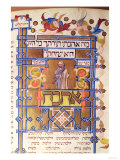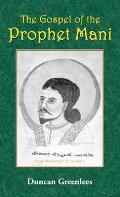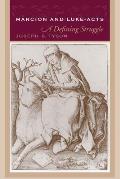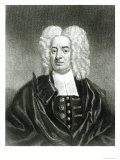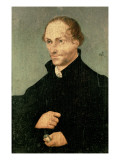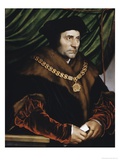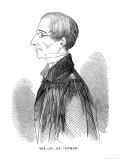|
|
|
|
|
|
Mani
c. 216 AD; Seleucia-Ctesiphon, today Iraq
c. 276 AD; possible crucifixion while imprisoned
Mani was the founder and prophet of the Late Antiquity gnostic religion Manichaeism, which is now considered extinct.
A Greek parchment codex containing fragments of Mani's writings and hagiographic account of his spiritual life, is now conserved at the University of Cologne. It was found in 1969 in Upper Egypt.
Mani quote ~
• ... “I follow thee. /I betook myself far from the world, I left my parents, /I passed unto the Lord who is greater than heaven and earth. /I hid not from thee, my God, I did not do the will of the body, that thou mightest not leave me in the hour . . . . /For the things of the smaller life pass away, they do not satisfy the . . ./ the lifetime also of men is a lamp that goes out. ...” ~ Psalm XXXI to Jesus
|
|
|
|
Marcion of Sinop
fl. c. 85-160
Marcion of Sinop, the son of a bishop of the early Christian church, affirmed that Jesus was the saviour sent by God, and Paul was his chief apostle; his declaration that many of the teachings of Christ were incompatible with the Yahweh had the result of the separation of sacred texts into Old and New Testaments.
He was excommunicated by the Church Fathers; one of his disciples was Apelles.
|
|
|
|
Cotton Mather
b. 2-12-1663; Boston, MA
d. 2-13-1728
Puritan minister Cotton Mather, the son of minister Increase Mather, was the most influential writer of his generation in America. In his lifetime New England's puritan period ended and the Amercan culture began moving toward the evangelical pietism of the eighteenth and nineteenth centuries leading to the ideas of Manifest Destiny.
Mather was a precocious child, entering Harvard at age 11, fluent in Latin, familiar with Greek and Latin literature, and had started Greek and Hebrew grammar. He also was beginning his habit of directing others on how to improve their spiritual lives.
Mather believed in witchcraft and his writings fueled the witch trials craze that began in 1692 and lead to the deaths of some twenty people and the imprisionment of many others.
Cotton Mather quotes ~
• “The Word of God must be Read and Heard with Diligence that so you may arrive to the Knowledge that is needful for you.”
• “Families are the Nurseries of all Societies; and the First combinations of mankind.”
• “What Must I Do to Be Saved? It is impossible to ask a more weighty Question! It is deplorable that we hear it asked with no more Frequency, with nor more Agony.”
• book - The Life and Times of Cotton Mather
|
|
|
|
|
|
|
Thomas Merton
b. 1-31-1915; Prades, France
d. 12-10-1968; Bangkok, Thailand
Poet, teacher, social activist and student of comparative religion Thomas Merton wrote more than 70 books, mostly on spirituality, as well as scores of essays and reviews. As a Trappist monk he became well known for his dialogues with other faiths and his non-violent stand during the race riots and Vietnam War of the 1960s.
As Merton was leaving the stage after delivering a speech at a peace conference in Bangkok his parting remark was “Now I am going to disappear.” A short time later he died from touching a poorly grounded electric fan while stepping out of his bath.
Thomas Merton quotes ~
• “What can we gain by sailing to the moon if we are not able to cross the abyss that separates us from ourselves? This is the most important of all voyages of discovery, and without it, all the rest are not only useless, but disastrous.”
• “The least of the work of learning is done in the classroom.”
• “The whole idea of compassion is based on a keen awareness of the interdependence of all these living beings, which are all part of one another, and all involved in one another.”
• “We are so obsessed with doing that we have no time and no imagination left for being. As a result, men are valued not for what they are but for what they do or what they have - for their usefulness.”
• “Advertising treats all products with the reverence and the seriousness due to sacraments.”
• “If you want to study the social and political history of modern nations, study hell.”
• “October is a fine and dangerous season in America, a wonderful time to begin anything at all. You go to college, and every course in the catalogue looks wonderful.”
• “Peace demands the most heroic labor and the most difficult sacrifice. It demands greater heroism than war. It demands greater fidelity to the truth and a much more perfect purity of conscience.”
• “Love seeks one thing only: the good of the one loved. It leaves all the other secondary effects to take care of themselves. Love, therefore, is its own reward.”
• “Happiness is not a matter of intensity but of balance, order, rhythm and harmony.”
• “A life is either all spiritual or not spiritual at all. No man can serve two masters. Your life is shaped by the end you live for. You are made in the image of what you desire.”
• “In the last analysis, the individual person is responsible for living his own life and for “finding himself.” If he persists in shifting his responsibility to somebody else, he fails to find out the meaning of his own existence.”
• “Art enables us to find ourselves and lose ourselves at the same time.”
• Thomas Merton Resources at Powell's Books
|
|
|
|
Sir Thomas More
b. 2-7-1478; London, England
d. 7-6-1535; Tower Hill, London (beheaded)
As a Catholic Thomas More was an opponent of the Protestant Reformation embodied by Martin Luther, William Tyndale and Henry VIII. His martyrdom is recognized with sainthood.
More's most well-known and controversial work, Utopia, a novel in Latin, was completed and published in 1516. It is considered a “shrewd critique of economic and social exploitation in pre-modern Europe and that More was one of the key intellectual figures in the early development of socialist ideas.”
FYI - More was the great uncle of John Donne's mother, Elizabeth Heywood.
Sir Thomas More quotes ~
• “For men use, if they have an evil turn, to write it in marble: and whoso doth us a good turn we write it in dust.”
• “... the proud spirit cannot endure to be mocked ...”
• “I must say, extreme justice is an extreme injury: For we ought not to approve of those terrible laws that make the smallest offences capital, nor of that opinion of the Stoics that makes all crimes equal; as if there were no difference to be made between the killing a man and the taking his purse, between which, if we examine things impartially, there is no likeness nor proportion. God has commanded us not to kill, and shall we kill so easily for a little money?”
• A Man for All Seasons DVD
|
|
|
|
John Henry Newman
b. 2-21-1801; London, England
d. 8-11-1890
John Henry Newman was an influential Anglican vicar in 1843 when he converted to Roman Catholicism from the Church of England, stunning Victorian England. He wrote his autobiography, Apologia Pro Vita Sua (A Defense of One's Life), in response of the attacks. Newman was eventually named a cardinal, and proclaimed ‘Venerable’ in 1991.
|
|
|
previous page | top | next
a | b | c | d-e-f-g | h-i-j-k | l | M-N-O | p-q-r | s | t-u-v | w-x-y-z
|
|
I have searched the web for visual, text, and manipulative curriculum support materials - teaching posters, art prints, maps, charts, calendars, books and educational toys featuring famous people, places and events - to help teachers optimize their valuable time and budget.
Browsing the subject areas at NetPosterWorks.com is a learning experience where educators can plan context rich environments while comparing prices, special discounts, framing options and shipping from educational resources.
Thank you for starting your search for inspirational, motivational, and educational posters and learning materials at NetPosterWorks.com. If you need help please contact us.
|
|
|
last updated 11/28/13
|
|







